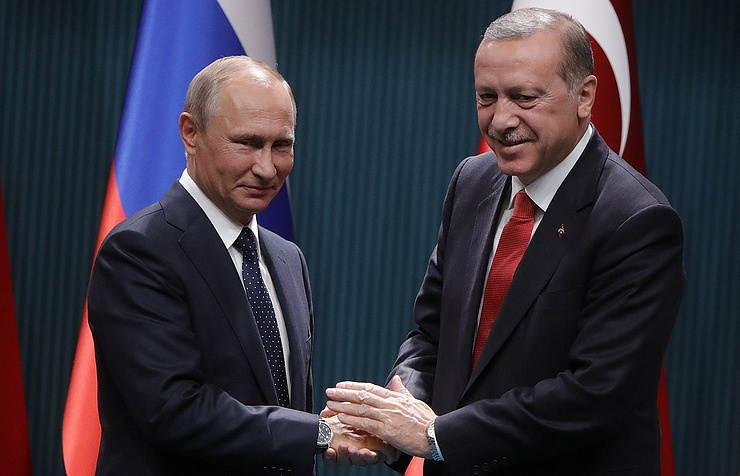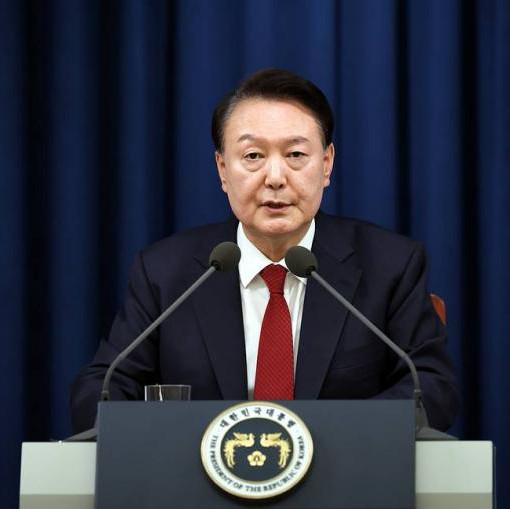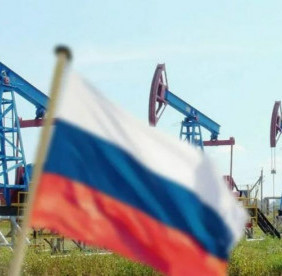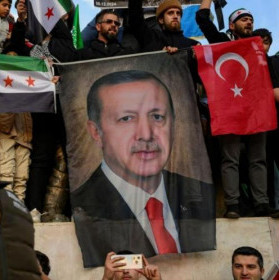
© Mikhail Metzel/TASS
Security issues of the trans-Baltic pipeline infrastructure have gained newfound relevance following a major Baltic Sea sabotage of September 26, which entailed critical damage to Russia’s two pipelines pumping gas to Europe.
The Europeans suspend Russia from engaging in the relevant inquiry amid uncertainty of conclusions by the Swedish authorities, who have been obsessed with the search for Russian submarines for decades. They recognized the fact of explosions, but did not to rush to specify their “customer” or “contractor”. And this will hardly happen at all given the ideological bias of "Scandinavian inspections". The Western countries’ anti-Russian political vector virtually excludes logical conclusions about those responsible. On September 28, the Prosecutor General's Office of the Russian Federation reported a criminal case into the crime, as it bears signs of an act of international terrorism. According to the department, deliberate actions were committed in the Bornholm Island area to damage the Nord Stream and Nord Stream 2 gas pipelines running across the Baltic Sea, which caused significant economic damage to the Russian Federation.
On September 29, Russian President Vladimir Putin publicly accused the “Anglo-Saxon” powers of sabotaging Nord Stream gas pipes.
With due regard to assessments of the September emergency in the Baltic, the Russian leader has proposed a strategic novelty capable of raising the bar for transit safety of Russian gas flowing to Europe. During his speech at the Russian Energy Week Forum on October 12, Vladimir Putin said it was worth considering the possibility of transferring Nord Streams capacities to the Black Sea, granting Türkiye the status of a major Russian gas transit country. "We could thus make the main routes for the supply of our fuel, our natural gas to Europe through Türkiye, creating the largest gas hub for Europe in Türkiye. That is, of course, if our partners are interested in this," the Russian president explained.
The very next day, Vladimir Putin met with Turkish leader Recep Tayyip Erdogan at the Astana Conference on Interaction and Confidence-Building Measures in Asia (CICA) summit, where he filled his colleague in on the details of Russia’s proposal to create a gas hub in Türkiye as part of expanded gas supplies to the EU. The Russian President admitted that the hub could become a platform both for fuel supplies to third countries and price determination.
Erdogan endorsed Putin's initiative. According to the NTV portal, the Turkish leader instructed his country's Energy Ministry to embark upon building the gas hub. "Together with Putin, we have instructed our Ministry of Energy and Natural Resources and the relevant institution on the Russian side to conduct a joint study… There is no need to wait here," Erdogan said. He deems Thrace (Türkiye’s northwestern part, where Istanbul is located) the most suitable place for the hub.
Efforts primarily imply the construction of new Turkish Stream threads, with their exact number yet to be agreed upon. Still, the plans are clearly ambitious. Thus, Gazprom chief Alexey Miller clarified the following: “If we talk about volumes that may appear in the TurkStream corridor, about new gas transit capacities, then we are talking about the volume that we have lost in the Baltic, in Nord Streams due to the acts of international terrorism”. This implies an annual 80+ billion cubic meters, i.e. the potential of five Turkish Stream threads, assuming that the two existing ones pump 16 billion cubic meters each, and the new threads will have the same capacity.
This will solve the transit security issue to a certain extent. The Russian authorities believe that risks of terrorist attacks against the Black Sea pipeline infrastructure are generally lower than in the Baltic Sea.
However, before starting to implement the Turkish gas hub project, we need to understand its expedience in the light of prospects for the Russian gas consumption by the European Union. A deep analysis is needed here. As you know, Brussels' strategic stake is to give up on Russian gas and hydrocarbons as a whole. For instance, the European Commission’s "REPowerEU" draft plan (released in March 2022) reads that Europe may become independent of energy carriers from Russia "much earlier" than in 2030.
Moreover, Türkiye itself is directly committed to the concept of energy independence. Erdogan, for example, has repeatedly announced major "finds" of gas and prospects for its production in the Black Sea. Thus, June 2021 saw Erdogan announce that Türkiye had discovered a new field with over 135 billion cubic meters of gas. In November, active work had already got underway to ensure that Türkiye could use Black Sea gas by 2023.
In general, if we talk about the real diversification of national gas exports, Russia should boost its focus on China and actively promote the China-oriented Power of Siberia 2 pipeline project (the contract for which Gazprom has to sign yet) with a potential capacity of up to 50 billion cubic meters of gas per year.









